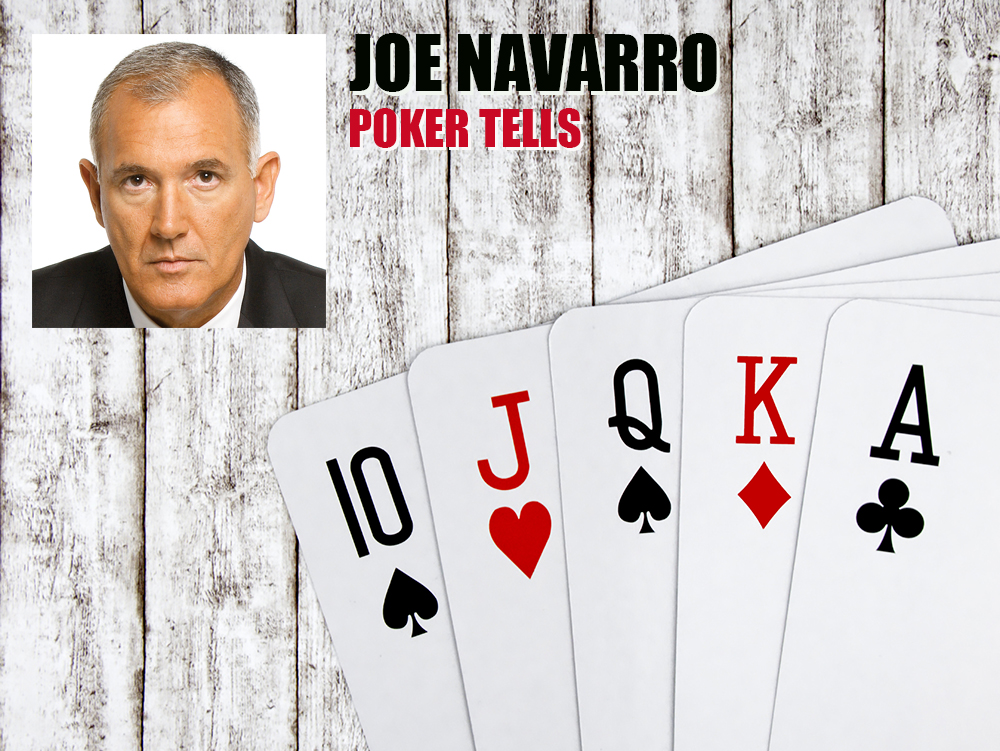Tells are called that precisely because they tell us something. They give us insight into what is going on in the brain (worried, stressed, confident, etc.). In poker, tells can make a difference in winning or losing. Talk to the pros and they’ll tell you tells matter. Talk to average players and they’ll tell you tells aren’t that important.
Which brings me to this: How do I feel about tells? I haven’t played a lot of poker, but I’ve spent hundreds of hours watching players in preparation for the books I’ve written. What I’ve noticed is some players are clueless about tells. Maybe they read something about it then decided the effort wasn’t worth it. Then there are those who overanalyze because they read if you touch your neck that is a significant tell. Neck-touching usually is associated with psychological discomfort or insecurities, but the question is why? So in the end, are tells all they’re cracked up to be? Yes, to a point.
Here is a list of nonverbals that are extremely accurate: neck-touching or massaging; lip-pursing (I don’t like); nose-crinkling or wrinkling (I don’t like); bouncing feet suddenly appear on the river (happy feet, positive emotions); squinting eyes (something negative or focus); elbow spread (confidence). The question then is, when these are observed, what happened at the table that caused them and in context what does it mean? For some players, that’s really hard work because you have to make thousands of observations in a tournament.
In 200 Poker Tells, the one you hear about in the new movie Mississippi Grind, you can delve into enough significant behaviors to make your head swim 200 times over. Now, obviously, all of these behaviors don’t apply to everyone and many you will never see. But then, every once in a while, as I often hear from players, they tell me how a particular behavior, one they read about, suddenly appears and it makes all the difference in the world. Sure, most people play low stakes and maybe tells don’t matter all that much. But I think it’s significant enough to know what to look for, to recognize when it happens and to act appropriately.
As one player wrote, “I was beginning to lose faith in tells or my ability to read them. Then one day, in Hollywood, Fla., I was playing and this guy, who I had not been able to read at all, his hands suddenly caged his cards with his fingers acting like bars on Fourth Street. I knew then he had the nuts. And he did and that saved my bankroll.”
I think knowledge is power. You never know when you’ll see a behavior, but that one behavior may just win you a tournament or save a well-earned bankroll.
— Joe Navarro is a former FBI Special Agent and is the author of What Every BODY is Saying and 200 Poker Tells. He writes about poker tells exclusively for Ante Up Magazine.




